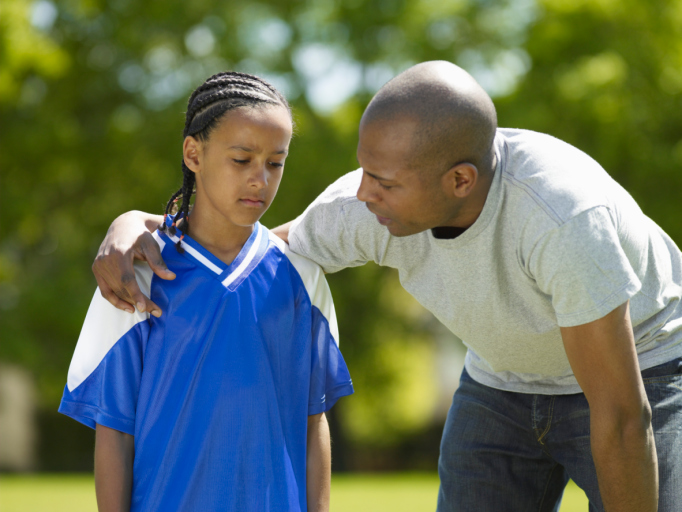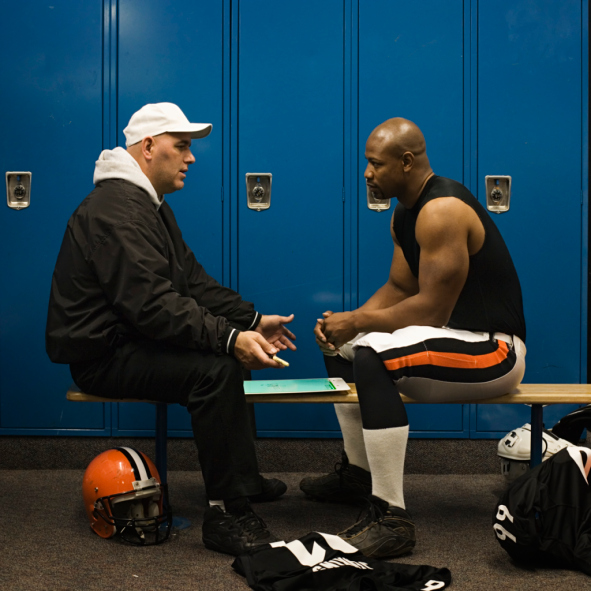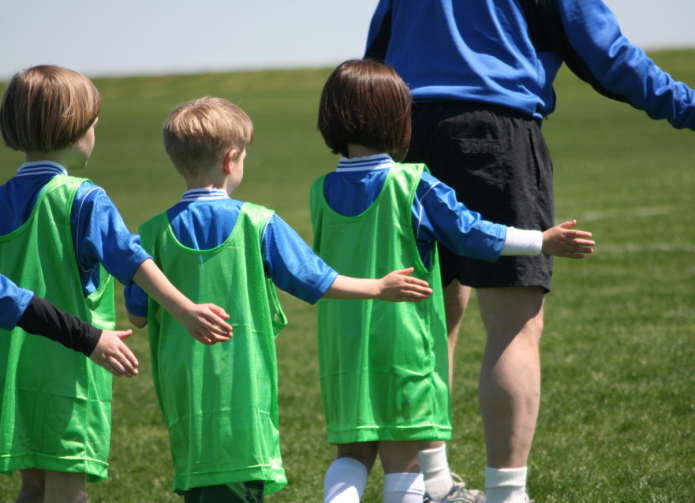Teenage girls. If you have ever coached a group of teenage girls, you know how incredibly wonderful they can be. Happy, fun, so much love and bonding, matching headbands, energy and passion. You also know that they are coming into their own as young women. They start to form cliques. Jealousy may arise if one teammate is perceived as a favorite over another. The best players at times will hold back, for fear that if they stand out too much they will be ostracized by their teammates. The weaker players are very conscious that they may be letting the team down, and wonder if they should keep playing. Throw this mix into a highly competitive club soccer environment, and things can go south very quickly.
That is the team I walked into when I first moved to Bend, OR nearly two decades ago. I took over a highly successful team of under 15s that was on the brink of imploding, and my preparation for rebuilding the group was being the father of a one-year-old daughter, and fifteen years of coaching boys teams with a few short stints with older girls. I was highly competitive, very impatient, and thought I had it all figured out. It was a recipe for disaster. Thankfully, the team had an assistant coach. His name was Greg Ranstrom.
Greg had been the assistant for quite a few years, as his daughter Claire was on the team. He was a great soccer player, and an all around fantastic guy, yet little did I know what an influence he would have upon my life, not just in coaching these girls, but in everything I do today. You see, Greg was the Founder of Outside Insights and a Program Director for the American Leadership Forum in Silicon Valley. His day job was to take C-suite executives from some of the biggest companies in the world, pry them away from their phones and computers, and take them on weeks long wilderness retreats around the globe, running rapids, hiking mountains, skiing the backcountry, and taking them places where they explored vulnerability, self-awareness, and developed their own leadership and team building skills. I had stumbled upon one of the greatest mentors a coach like me could ever have. And boy did I need one.
As I set out to “fix” the team, get them back to state champion level, and prove to everyone what an awesome coach I was, my competitive nature got the best of me. I was continually frustrated by the performance. I was angry at a perceived lack of commitment. I harped on and criticized every mistake. I could see on Greg’s face that he was not approving of my methods, but he said very little. Which was good, because I probably wouldn’t have listened. And then came a game where I blew my top. We played awful, because the girls were scared to death of me, and of their own shadows. Thankfully, that was when Greg sat me down and gave me my first lesson.
“John,” he said in a kind, caring voice, “can’t you see that these girls only want to please you? Only want to make you proud of them? Only want to play well and win? Have you looked at them? They are scared to death. They are starting to hate soccer. And they are starting to hate you. You have so much to give them. You have so much to teach. But right now the way you are coaching isn’t about them. It’s about you. Have you really looked around to see what is happening?”
My friend Greg was diagnosed with ALS in 2019 and passed away in October of 2021. He left behind an incredible wife Alisa, and three beautiful children in Madeline, Claire and Cole. He also left a legacy to everyone who knew him, and those that they influenced. At his memorial service in December, 2021, the CEO of American Leadership Forum asked me what I remembered most about Greg and his leadership style. And it was perfectly encapsulated in the conversation I had with him that rainy spring day in Portland, OR:
“Greg,” I said, “had the most wonderfully kind way of letting you know you were totally full of shit, and did so in a way that made you listen, reflect, eat some humble pie, and become a better person.”
“Yes!” everyone within earshot said, and we raised a whiskey toast to our great friend.
Greg had some incredible qualities that made him such an effective leader, and leader of leaders.
- He was a deep, attentive listener.
- He was curious about other people, asked tons of questions, and always approached every interaction with an attitude of “what can I learn from this person” instead of “what can I teach them.”
- He shared his love of the outdoors and adventures, and sought to understand what inspired and drove those around them
- He was one of the most selfless people I ever met, always putting others and the good of the community first
- He sought common ground, equity and justice, and focused on the areas where people were alike, instead of their differences
- He knew that there was a way into everyone’s heart, if you just had the patience and curiosity to try and find it
- He knew that people want to feel belonging, and sought to create connected communities on the sports field, in local government, and wherever he went.
And finally, most importantly for me, he did not avoid difficult conversations. He told you the truth, as hard as it was to hear, but he did so in such a caring way that you knew he was in it for you. Could you ever have a more important quality in a coach and a friend? A person with your best interest in mind?
As Greg’s ALS symptoms worsened he could have gone into a shell of self pity, but he did the opposite. He gave more. He sought to inspire and connect others. Once he could no longer drive I remember taking him to Home Depot to buy a new grill, and all we spoke about was his new project, Who is Working on What, a project to connect people with like minded people looking to make purposeful change in their communities. Months later, when he was confined to a wheelchair and starting to lose his speech, we spent two hours having a socially distant beer on his back porch, discussing the divisiveness caused by the rampant individualism present in today’s world. And on the last night of his life, as my daughter and I joined friends of his from around the world in a candlelight vigil outside his window, I was once again struck by the diversity of people and ideas my great friend had brought together in his life.
Your influence is never neutral. You always have either a positive or negative impact in every interaction. And the more you realize this basic truth, the more powerful your influence will be. This was Greg in a nutshell.
A year before his passing, his family took Greg to celebrate his birthday at the Alvord Desert in eastern Oregon. There is a video of Greg, driving alone in his motorized wheelchair, looking out over the vast landscape and a setting sun. He knew his time was coming to an end, and yet I am confident in those last few days he was thinking to himself “what more could I do? Who else can I bring together? What can I give?”
Greg Ranstrom and I coached together for three years, and those amazing ladies came together and won three straight state championships. Over the next decade we had numerous coffees and beers and discussed book publishing, running workshops, speaking, and so much more. He was a mentor and an incredibly positive influence in my life. He was a friend. And I miss him.
So in concluding today, here is what I ask of myself, and all of you coaches, parents and influencers given the great responsibility of working with children in sports. Be a little more like Greg. And if you can, take a moment to honor and celebrate his memory, by doing one of the following things suggested by his family:
- Exaggerate the details of a story around a campfire
- Lay on the floor and play with your dogs
- Work for the common good in your community
- Meditate in the morning
- Love the land
- Indulge in your inner rascal once in a while
- Listen deeply
- Go for a moonlight ski or hike
- Look for the opportunities when you get lost
- Brush your teeth with whiskey
- Bake a loaf of sourdough bread
And last, but perhaps most important of all:
Practice being fully present with the people you love.
Thank you Greg Ranstrom. You made me a better dad, better husband, better coach, and a better human being. You will never be forgotten, and your influence will continue to grow every day.













Comments